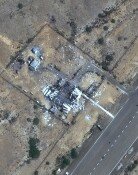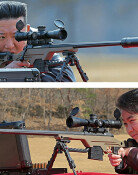Gov`t Reluctant to Intervene in FX Market
Gov`t Reluctant to Intervene in FX Market
Posted February. 26, 2009 09:45,
Does the Korean government want to intervene in the foreign exchange market or not?
At a contingency committee meeting held in the southern Seoul suburb of Gwacheon, Strategy and Finance Minister Yoon Jeung-hyun said yesterday, The weakening won can drive our export growth. The government should continuously pay much attention to the export sector, which will help the nation overcome the crisis.
His comments have created fears over the governments future moves.
Yoons announcement apparently hints at the government not proactively intervening in the foreign exchange market and letting the won stay weak to boost exports. The government has proactively intervened in the foreign exchange market to prevent the won from further weakening.
The finance minister, however, implied that the government will revamp its foreign exchange policies. The won got a bit stronger early yesterday morning, but his announcement encouraged investors to buy dollars.
Market players acknowledge that Lee Myung-bak administrations newest economic team led by Yoon has adopted policies different from those of the previous team. They have struggled to understand what stands behind the policy changes, but by doing so, they hope to predict the wons future.
The most plausible scenario expressed by foreign exchange experts is that foreign exchange authorities will exploit the benefits of a weaker won instead of intervening in the market.
○ FX authorities step back
In Seouls foreign exchange market, the won-dollar rate fell to 1,516 won per dollar yesterday. Boosted by the strong performance of the New York stock market, the won appreciated to 1,499 when the market opened. The currency fluctuated in the day, however, due to rumors that AIG sought bankruptcy protection, fears in the global financial market resulting from faltering Eastern European economies, and surging demand for payments from importers.
A foreign exchange dealer at a commercial bank said, The market is paying sharp attention to the governments decision, but Im confused by the governments mixed signals. A few days ago, the government announced that foreign exchange reserves can fall under 200 billion U.S. dollars. Now it seems to want to allow the won stay weak.
A Strategy and Finance Ministry official said, Yoon mentioned the benefits of the weak won since only the negative aspects have been emphasized. Financial authorities are sticking to their guiding principle of responding to market changes when necessary.
A foreign exchange expert said, The second economic team seems to suggest different foreign exchange policies. Foreign exchange speculators are afraid since the second economic team is likely to inject a large amount of dollars into the market when the won-dollar rate is considered to have reached a certain point instead of frequently intervening.
○ Strengths of a strong dollar
Despite declining foreign exchange reserves, the second economic team has shown no sensitivity to the weakening won since market conditions have significantly changed from last year. Undeniably, the Korean currencys plunge has put pressure on the economy but is also a positive influence.
The first economic team was blamed for its unnecessary use of a large amount of foreign exchange reserves. It let the won weaken to help Korea record a current-account surplus even when international oil prices surged. As the weakening won put inflationary pressure on the economy, the team had to spend foreign exchange reserves to prop up the currency.
When the second economic team was launched, the Korean economy had recorded a trade surplus for three consecutive months from October last year.
In addition the possibility of Korea facing a new currency crisis has significantly decreased. Last year, commercial banks could not purchase dollars due to lack of circulation but can now buy the greenback if they can afford it.
Foreign investors have also indicated that they will buy Korean stocks instead of dumping them. The weakening won can encourage more foreign investment in Korea.
International oil prices no longer result in inflationary pressure. When the first economic team was launched in February last year, Dubai crude was 90.16 U.S. dollars per barrel but has fallen to 43.12 dollars this month. Prices have also declined for six straights months, weakening inflationary pressure on import prices. Instead, experts have expressed fears of deflation in the global economy due to the economic slowdown.
The weakening won can also greatly help exporters so long as the government does not intervene in the foreign exchange market. A senior executive at Samsung Securities said, The won has weakened more sharply than expected but is highly likely to strengthen in the second half. All economies are struggling to find measures to boost their exports. The weakening won can be an effective policy to help Korean exporters.
○ Intolerance of rapid depreciation
The pace of the wons fall can pose threats, however. If it rapidly weakens over the short term, it will raise uncertainty in the financial market and heighten corporate risk. A plummeting won will also aggravate the asset quality of banks and foreign exchange losses at oil refineries and food companies that heavily depend on imported materials.
Companies that bought KIKO currency options or yen borrowers will face ballooning losses.
Against this backdrop, foreign exchange authorities have made an all-out effort to inject more dollars into the market, which will in turn stabilize foreign exchange rates. In line with the effort, the government plans to more than double its issuance of foreign exchange stabilization bonds from a year ago to 20.6 trillion won (13.6 billion dollars). The bonds could also be issued earlier than scheduled.
Ahn Sun-kwon of Korea Economic Research Institute said, Even when Koreas credit default swap premium is higher than expected, the government can help commercial banks secure foreign currency funds if it issues foreign exchange stabilization bonds.
Commercial banks could begin borrowing foreign currency funds via the governments payment guarantee from next month at the earliest. At the same time, the government is considering expanding currency swaps between Korea and Japan; borrowing dollars on the security of U.S. government bonds; encouraging foreign investors and ethnic Koreans living abroad to invest in Korea; and selling overseas assets of government-invested organizations.
parky@donga.com cha@donga.com







